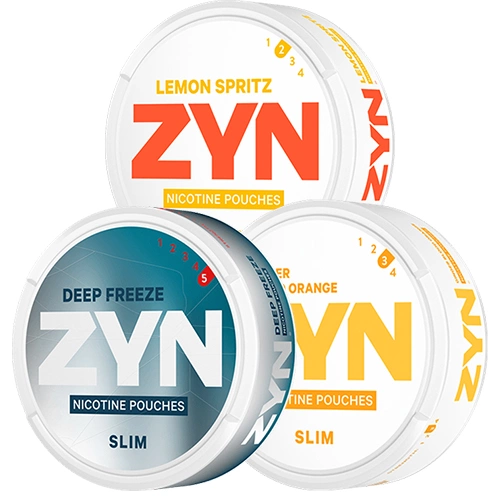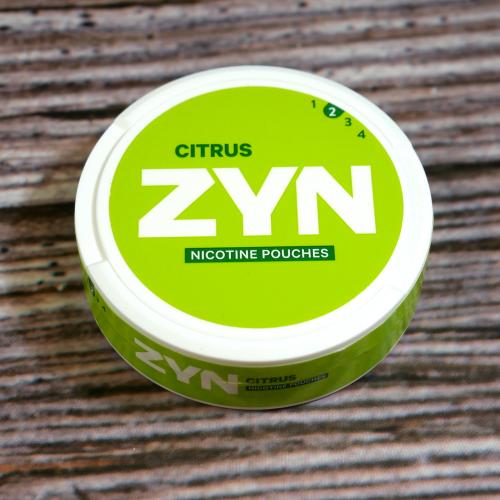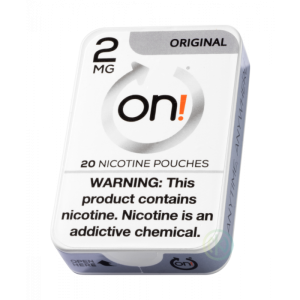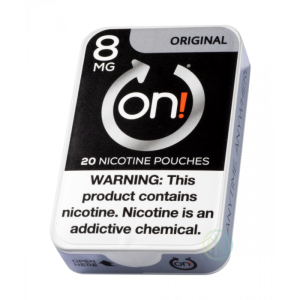
Customs Minister Casey Costello has reduced the excise tax on heated tobacco products. Image: RNZ / Angus Dreaver Associate Health Minister Casey Costello has lowered the excise tax on Heated Tobacco Products (HTPs), with the intention of making them more appealing as a substitute for smoking.
Costello, who also serves as Customs Minister, has decreased the excise rate on HTPs by 50 percent, effective from 1 July—a change quietly posted on the Customs website.
Costello declined to be interviewed by RNZ, but a spokesperson stated that her decision to lower the cost of these products was to motivate smokers to transition to less harmful options.
However, Janet Hoek, a Professor of Public Health at the University of Otago, mentioned to RNZ that the action appeared to be biased towards the tobacco industry.
“Indeed, that is a development that tobacco companies would have eagerly anticipated,” Hoek remarked. “This is not guidance that originates from the Ministry (of Health). It certainly appears to be counsel that aligns with the interests of the tobacco industry.”
The tobacco behemoth Philip Morris possesses a prominent brand in the HTP market, the IQOS, which involves inserting tobacco sticks into a device where they are heated instead of combusted.
Philip Morris has advocated for a reduction in the excise tax on HTPs, suggesting to the Tax Working Group in 2018 that the government ought to “set a tax rate for heated tobacco products markedly lower than the tax rate” applied to tobacco.
In a statement to RNZ, Costello mentioned that vaping has been an effective tool for quitting smoking and she is interested in exploring whether HTPs could also serve as a valuable cessation aid.
“Vaping is not effective for everyone, and some individuals attempting to quit have made multiple attempts. HTPs share a comparable risk profile with vapes and are currently legally accessible, so we are examining the effects of halving the excise on those products,” Costello explained.
Costello’s curiosity in tobacco and nicotine products that do not involve smoking Earlier this year, the government discontinued Labour’s smokefree initiative, which health authorities had characterized as an “ultimate objective” for the tobacco industry in New Zealand.
These actions would have drastically reduced the number of tobacco retailers from 6,000 to 600, removed 95 percent of the nicotine from cigarettes, and established a generation free from smoking by prohibiting sales to anyone born after 2009.
Costello has expressed her dedication to the Smokefree 2025 target and is also contemplating whether permitting the sale of oral nicotine products, such as snus and nicotine pouches, could contribute to achieving this objective.
Ministry of Health documents indicate that in March, Costello suggested to a Cabinet committee to “consent in principle to allowing the sale of tobacco and nicotine products that do not involve smoking, provided the evidence demonstrates they are considerably less harmful than smoking.”
However, the ministry cautioned Costello against allowing the sale of snus and nicotine pouches.
“On balance, we do not endorse expanding the variety of nicotine products available for purchase in New Zealand,” it stated. “Additional products may exacerbate existing concerns regarding young individuals’ dependency on nicotine with minimal advantage.”
The ministry informed Costello that there was “insufficient evidence” that snus aids people in quitting smoking. “The risk of feeling addicted may be greater for snus than for tobacco that is smoked. The use of snus may heighten the risk of certain health issues.”
The ministry expressed concerns about nicotine pouches, noting that they are a novel product with growing concerns surrounding them.
“There is not reliable evidence to date to substantiate their potential use as a lower-risk alternative to smoking, and there is currently no evidence of their efficacy for smoking cessation,” officials communicated to Costello.
“There is evidence of them being promoted to children in other countries, and they are linked with nicotine reliance and addiction. Children, adolescents, and non-smokers are deemed at high risk of dependence.”
In her statement to RNZ, the Minister adopted a more cautious stance on nicotine pouches compared to what was suggested in the Cabinet committee document.
“I have reservations about nicotine pouches, which appear to be aimed at young individuals,” Costello stated.
The Associate Health Minister indicated that she would continue to seek counsel regarding the efficacy and safety of alternatives to smoking.
“If there are tobacco or nicotine products that are significantly less harmful than smoking—that is, they have a comparable risk profile to vaping—then I want advice on whether it’s beneficial to have them accessible to assist people in quitting smoking,” she said.
“The balance we need to achieve is to prevent young individuals from becoming addicted to nicotine. New Zealand did not have any regulations concerning vaping until it was too late, and youth vaping became unmanageable.”
Nicotine pouches, which users position between the gum and the lip to absorb nicotine into the bloodstream, are aggressively marketed to young individuals by influencers on TikTok and Instagram.
Major tobacco companies have capitalized on nicotine pouches as an alternative source of income.
Philip Morris acquired Swedish Match, the producer of the Zyn brand of nicotine pouches, for $27 billion in 2022.
British American Tobacco, the owner of the Velo and Lyft brands of nicotine pouches, has advocated for the government to legalize these products in New Zealand. ”
The government’s omission to include smokeless oral nicotine products within the same regulatory framework as vaping products represents a substantial missed opportunity for progressing Smokefree 2025,” it remarked in a 2021 submission on the government’s smokefree strategies.

AUBURN UNIVERSITY, Ala. — From Major League Baseball (MLB) and the National Football League to news networks and social media, nicotine pouches have made their presence well-known. Like many vaping products, people see these pouches as an alternative to tobacco. Could these pouches be the new vaping? Their recent growth in popularity has some people wondering if they will become popular among young people, similar to vaping products.
What are nicotine pouches?
Adrienne Duke-Marks, an Alabama Cooperative Extension System human sciences specialist, explained that nicotine pouches are a relatively new introduction to consumers.
“Nicotine pouches made their debut in the United States market in 2016, and their sales have surged in recent years,” Duke-Marks stated.
Nicotine pouches are tiny, oral pouches filled with nicotine salts and various other ingredients. Some of the well-known brands of these products include Zyn, Velo, and Rogue. These pouches do not contain tobacco. However, the U.S. Food and Drug Administration still oversees them because federal law classifies any item containing nicotine derived from tobacco as a tobacco product.
Users place these pouches between their lips and gums, allowing the nicotine to be absorbed through the mouth. Unlike snuff or chewing tobacco, there is no need to expel this product. This characteristic appeals to individuals seeking a more convenient and cleaner method of nicotine consumption. FOX Sports reported in early 2023 that certain MLB players have adopted these products due to bans on oral tobacco.
“These pouches come in a variety of flavors and can be consumed inconspicuously,” noted Duke-Marks, who is also an associate professor in the Auburn University College of Human Sciences. “The pouches bear resemblance to Swedish snus, which is actually recognized by the FDA as one of the few products linked to tobacco harm reduction.”
The term tobacco harm reduction is associated with the use of less harmful nicotine products instead of conventional nicotine products, such as cigarettes.
Impacts on Well-being
As vaping products rose in popularity in the early 2010s, individuals questioned their impacts on health. Today, there is a better understanding of their effects on the brain, heart, lungs, and cancer risks. Similarly, curiosity may arise about the health effects of nicotine pouches and how they compare to vaping and traditional tobacco.
Pouches can vary in nicotine content. Duke-Marks emphasized that it is crucial to remember that all forms of nicotine are addictive and can negatively affect adolescent brain development.
“Nicotine pouches actually have lower levels of harmful chemicals compared to other nicotine products,” she mentioned. “However, the high nicotine concentrations in some of these pouches are a cause for concern, especially for youth who have never smoked. Currently, there are no long-term studies on the effects of nicotine pouches on the mouth or other bodily systems.”
Utilization Among Young Individuals
Research conducted over the past several years indicates a consistent rise in the number of U.S. middle- and high-school students employing electronic nicotine devices. For nicotine pouches, retailers have observed a surge in sales. However, Duke-Marks noted that there has not been extensive research to investigate self-reported use of nicotine pouches among youth or adults.
“As with other novel nicotine products, youth and young adults are frequently the first to experiment with new substances and popularize their usage,” Duke-Marks commented. “However, a recent study on marketing in the U.S. has not discovered that they (companies) are specifically aiming at youth audiences at this juncture.”
Will these nicotine pouches become the next vaping trend? At this stage, further research is required before experts can provide an answer to that question. Nonetheless, parents and guardians can leverage the popularity of these pouches as an opportunity to discuss nicotine with young individuals.
“If you simply tell young people that you do not want them to smoke or vape, you are not addressing the primary substance that causes addiction in teens,” Duke-Marks remarked. “Speak to them about the perils of nicotine and the influence of addiction on the body and mind. Focus more on the substance and less on the method of introducing it into the system.”
Additional Information
Alabama Extension’s human sciences team offers resources that can assist you in having this conversation with your child or young adult. These resources encompass topics such as smoking, vaping, cigarillos, pouches, hookah/shisha, and others. To locate these resources, search for these topics at www.aces.edu. You can also visit the website’s Health section under the Home and Family topic area.
Please be aware that the trade and brand names utilized in this publication are provided for informational purposes solely. No warranty, endorsement, or discrimination among comparable products is intended or implied by the Alabama Cooperative Extension System.

Nicotine pouches are being utilized as an alternative to weight loss medications such as Wegovy and Ozempic.
Nicotine is recognized as an appetite suppressant but it carries numerous health risks.
Dangers of oral nicotine products include stomach discomfort, dental decay, and specific types of cancer.
Experts suggest that you can naturally reduce your appetite through lifestyle adjustments.
Instagram and TikTok users are advocating for the use of Zyn brand nicotine pouches as a method to suppress appetite in a trend that has been dubbed “O-Zyn-pic” — a cost-effective alternative to GLP-1 drugs like Ozempic and Wegovy.
Content creators are asserting that the $5 servings of flavored nicotine have aided them in shedding up to 30 pounds.
Nevertheless, while nicotine might assist in diminishing appetite, health professionals are voicing their worries about this troubling trend and the health risks linked to nicotine.
Health dangers of Zyn nicotine pouches
Zyn pouches are positioned between your lip and gums, and the nicotine is absorbed into the bloodstream.
“Nicotine is a highly addictive substance, which can result in psychological and physiological dependence, as well as withdrawal symptoms upon stopping use,” notes Amy Reichelt, PhD, Chief Innovation Officer at PurMinds Neuropharma.
With GLP-1 agonists like Ozempic being very costly and prescription medications that are only appropriate for a specific group of individuals, Reichelt isn’t astonished that people are turning to nicotine products that are easily accessible to the general public to assist with weight loss.
As an appetite suppressant, it can be quite effective.
“Nicotine can influence appetite in various ways, including modifying activity in reward processing brain circuits through stimulating the release of neurotransmitters, and also through affecting the activity of the appetite-regulating hormones leptin and ghrelin,” Reichelt elaborates.
Nonetheless, she believes the health risks aren’t worth it.
In the short term, she says nicotine pouches can lead to a variety of side effects, particularly at higher doses, such as:
nausea
headache
dizziness
throat irritation
gastrointestinal discomfort
In the long term, the risks can be more severe.
“Nicotine can have immediate cardiovascular effects, including raising heart rate and blood pressure, which may pose risks for individuals with pre-existing cardiovascular conditions,” she explains.
Nicotine use is also linked to an increased risk of stroke and different types of cancer.
A study of 44 nicotine pouch products and two nicotine-free pouches published in 2022 discovered that 26 of the samples contained cancer-causing chemicals known as tobacco-specific nitrosamines.
Nicotine pouches may damage your dental health as well
“Oral nicotine products primarily consist of nicotine, flavorings, a pH buffer, filling agents, as well as a small amount of harmful tobacco-specific nitrosamines (TSNAs), metal, and formaldehyde,” Reichelt hypothesizes. “Since nicotine pouches are placed in the mouth against the gum, there is research exploring whether these pouches contribute to periodontal disease and harm to the gums that can result in tooth loss or decay.”
A 2023 study discovered that when applied to the same area of the mouth consistently, Nicotine can contribute to periodontitis, the primary cause of tooth loss.

Cigarette maker Philip Morris International is halting internet sales on Zyn.com following the discovery that their partner may have unlawfully marketed goods in the country’s capital.
Swedish Match North America, a subsidiary of the tobacco behemoth that owns the nicotine pouch label Zyn, is confronting a summons in Washington, DC. The city’s chief legal officer has focused on Zyn sales and their adherence to a 2022 prohibition on flavored tobacco and flavored synthetic nicotine.
Zyn pouches are diminutive, nicotine-laden sachets that a consumer places between their gums and their upper lip. The merchandise does not incorporate tobacco, according to the company. Zyn pouches also vary from snus — another oral nicotine product — in that they are composed of nicotine powder, as opposed to chopped tobacco leaf.
Zyn.com is suspending sales following Phillip Morris’ initial inquiry which indicated the flavored nicotine pouches might have been sold in Washington, DC, primarily through online sales and independent vendors, as per a statement. As the company examines its “sales and supply chain arrangements,” it will cease selling products online as an “initial corrective action.”
“In the event of an adverse outcome related to this issue, a significant financial obligation is reasonably probable though not quantifiable at this time,” the company stated in a statement.
The cessation of online sales does not signify the disappearance of Zyn products—sales on the Zyn website have constituted a minor fraction of “nationwide Zyn volumes” since Phillip Morris acquired the company, according to their statement.
Zyn products have been a subject of debate for several months.
In January, Senate Majority Leader Chuck Schumer urged regulators to scrutinize the nicotine pouches, referencing their allure to adolescents. The Food and Drug Administration states it is monitoring the underage consumption of nicotine products.
Approximately 1.5 percent of high school and middle school students reported using nicotine last year, the FDA said, considerably less than the 10 percent of students who reported using e-cigarettes.

Senator Charles · Schumer, in a recent warning to parents, described the popular nicotine product Zyn as “problematic packaging” and advocated for the government to investigate the brand’s promotional tactics and impact on well-being.
You may not be familiar with Zyn or its ilk, such as On! , VLO and Rogue) but sales of these smokeless, often smokeless nicotine pouches surged from 126 million in August-December 2019 to more than 808 million between January and March 2022. In 2022, tobacco giant Philip Morris International made a significant investment in Zyn, acquiring its parent company, Swedish Match, as part of its expansion into smoke-free products. Zyn and other oral nicotine products are expected to generate $2 billion in revenue in the United States this year. On social media platforms such as TikTok, the product is favored by so-called “zynfluencers” who record their daily usage, skillfully place the bag on their upper lip before training at school, at work or at the gym, during sports competitions, while participating in video games, and conduct flavor tests with friends.
These pouches provide 3 mg and 6 mg amounts to inject nicotine directly into the bloodstream through the membrane wall of the mouth rather than through the lungs. In many ways, these bags are safer than other nicotine products available because they do not utilize tobacco leaves and therefore contain fewer carcinogens. However, they are not without risks: they can form habits and lead to heart-related problems, gum deterioration, and nausea. Experts have also expressed concerns about how effortlessly they hide and the variety of flavors they offer, such as mint, coffee, and citrus, that make them appealing to children.
These brands “really emphasize flavor, and all bags have a lively monosyllabic name.” It looks like they’re trying to make them more like chewing gum than real nicotine products,” commented Tory Spindle, associate professor in the Department of Psychiatry and Behavioral Sciences at the Johns Hopkins University School of Medicine.
“One area of concern we are about the assertion that the product is not conspicuous,” added Meghan Moran, an associate professor in ·the Department of Health, Behavior and Society at the Johns Hopkins Bloomberg School of Public Health, who is working with Spindle to investigate nicotine pouches. “We are concerned that this may be tempting for young people and we are currently conducting a study to determine if this is indeed the case.
The Hub connects with Spindle to learn more about this emerging form of nicotine.
As a researcher, what initially sparked your interest in nicotine bags?
I have observed many similarities between e-cigarettes and nicotine bags. They seem to come in a variety of flavors that can make them appealing to [young people], but the risk of using nicotine products in young people is that the long-term effects are not known and may also lead to the use of other substances. However, on the other hand, they are undoubtedly safer than current tobacco products.
This is where the public health dilemma lies: how do we ensure that smokers or oral tobacco users (those who dip or chew) have access to them so that they can choose less harmful alternatives, while avoiding inadvertently creating a group of nicotine-addicted people who might otherwise have never tried such products?
When you mention that we haven’t understood the long-term effects of these products, are you referring to tobacco-free nicotine?
These bags contain flavorings and other ingredients that are not traditionally included in nicotine products. So while they lack the typical carcinogens that we know are present in high concentrations in tobacco, we are uncertain about the potential effects of some other substances.
Also, when an individual uses any substance during puberty, their brain is still in the developing stage. The use of nicotine or other addictive substances can affect brain development in ways that are difficult to foresee.
So, how much is currently known about the safety of nicotine pouches?
My research shows that they can cause an immediate negative reaction. Some users have reported feeling nauseous. Others have mentioned mouth sores due to overuse. However, it is undeniable that they contain fewer conventional carcinogens than oral tobacco products, such as chewing tobacco and similar items.
I’ve also seen it promoted as a stimulant that improves mental clarity. Is there any scientific evidence to support this? Studies have shown that nicotine is a stimulant that can enhance cognitive function.
There is some truth to this statement. However, the question arises as to whether young people who would otherwise not use tobacco products should use it for this purpose, rather than another stimulant with a lower potential for abuse and less of a problem, such as caffeine.
Are there significant differences between the various brands in the market?
Not all of them are truly smoke-free. Some contain nicotine extracted from tobacco. Tobacco-specific nitrosamines and other harmful substances are present in trace amounts, but their levels are still much lower than those found in chewed tobacco. There are a few other bags that contain synthetically produced nicotine, which is made in a laboratory and not extracted from tobacco. It may not always be clear from the label whether nicotine is synthetic or not, but this is a subtle distinction that we have observed in our studies.

EXCLUSIVE TO FOX: A pair of right-leaning charitable organizations have collaborated to allocate funds at significant sports competitions throughout the nation this summer to denounce and highlight an effort by Democrats to impose stricter regulations on nicotine pouches.
The groups, Americans for Consumer Protection and Building America’s Future, have initiated a campaign with a substantial financial investment, commencing with a presence at the U.S. Open golf tournament in North Carolina, where activists, equipped with placards and informational materials, urged policymakers to “Preserve Our Satchels.”
“Nicotine pouches have been discovered to assist adult smokers in shifting ‘toward less harmful options.’ Sweden has nearly eliminated the use of conventional cigarettes by ‘facilitating this shift to less harmful options’ and the nation’s willingness to permit the sale of smoke-free alternatives (such as nicotine pouches) to cigarettes,” the charitable organizations stated in a public statement.
“Rather than prohibiting nicotine pouches, alternative products to cigarettes, like nicotine pouches, have contributed to the swift reduction of smoking prevalence among adults in Sweden.”
AUTHORITIES DESCRIBE SCHUMER’S ASSAULT ON ZYN AS ‘ETHICAL TERROR’ REGARDING SMOKELESS NICOTINE ITEMS THAT CAN ‘RESCUE LIVES’
Activists present at the U.S. Open, advocating the “Preserve Our Satchels” slogan, distributed promotional items and gathered endorsements for a petition to halt the recent initiative to prohibit Zyn nicotine pouches.
Senate Majority Leader Charles Schumer, a Democrat from New York, demanded a federal crackdown on Zyn nicotine pouches earlier this year, provoking a robust counter-reaction.
FETTERMAN DISMISSES LEADING DEMOCRAT’S EFFORT TO SUPPRESS ZYN: ‘IN FAVOR OF GREATER LIBERTY’
While Schumer did not call for an outright ban on Zyn nicotine pouches, he issued a caution to parents about their popularity and declared he was requesting the FTC and the FDA to investigate Zyn due to concerns related to marketing and health impacts on children.
The U.S. Open was the inaugural event of the “Preserve Our Satchels Summer Tour,” which is anticipated to target ten similar sports competitions in the forthcoming months to “persist in fostering resistance against a prohibition on nicotine pouches.”
The press release elucidates that the Preserve Our Satchels Summer Tour will “assist in involving low propensity conservatives in the lead-up to the 2024 election” and “the gatherings they will prioritize feature a wealth of conservative pouch users who might not typically partake in conventional political events such as rallies or state party conventions.”
Future events the groups are contemplating attending next encompass UFC 303, WWE SummerSlam, and NASCAR events, including the Great American Getaway, Firekeepers Casino 400, and Quaker State 400.








